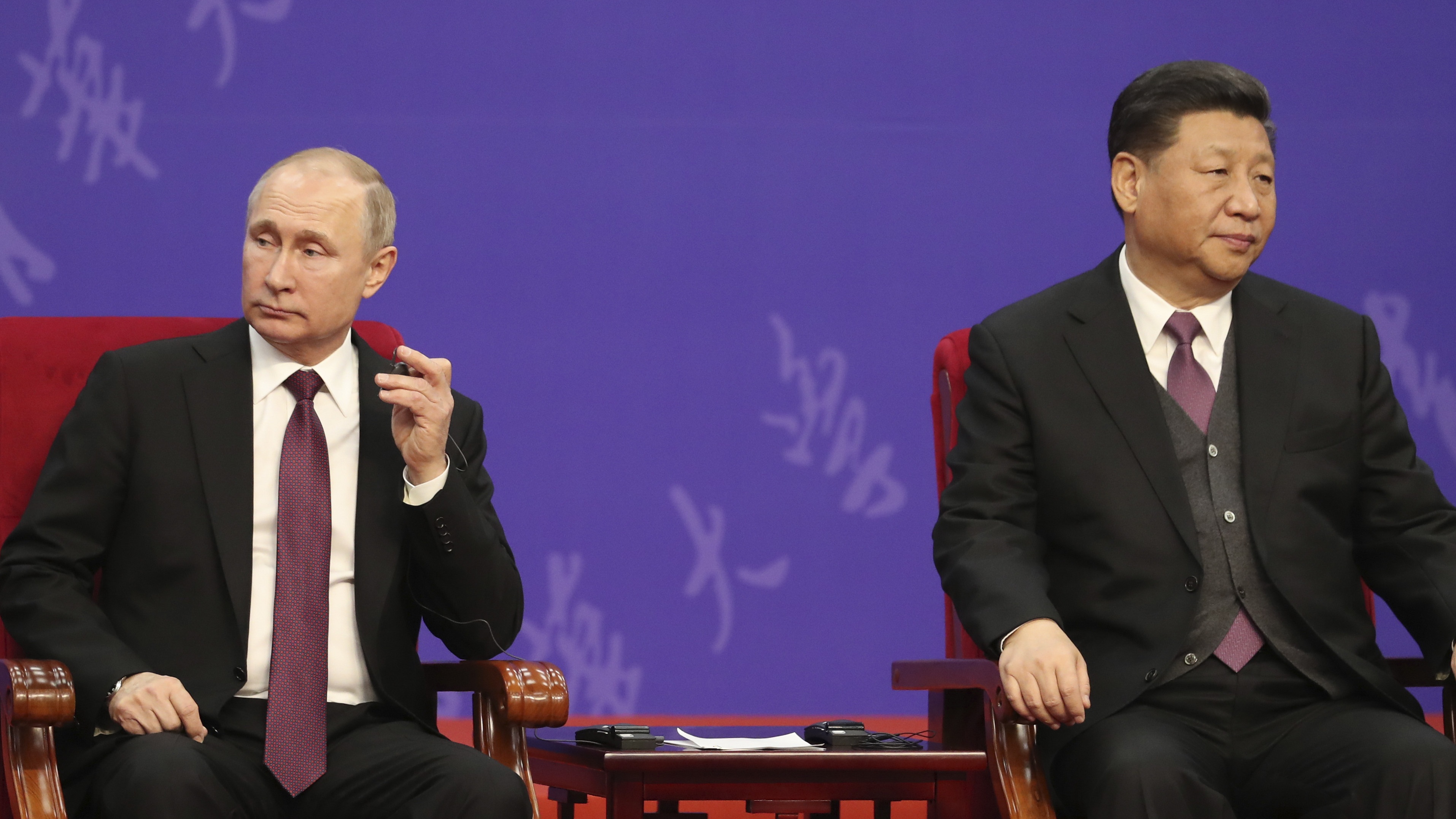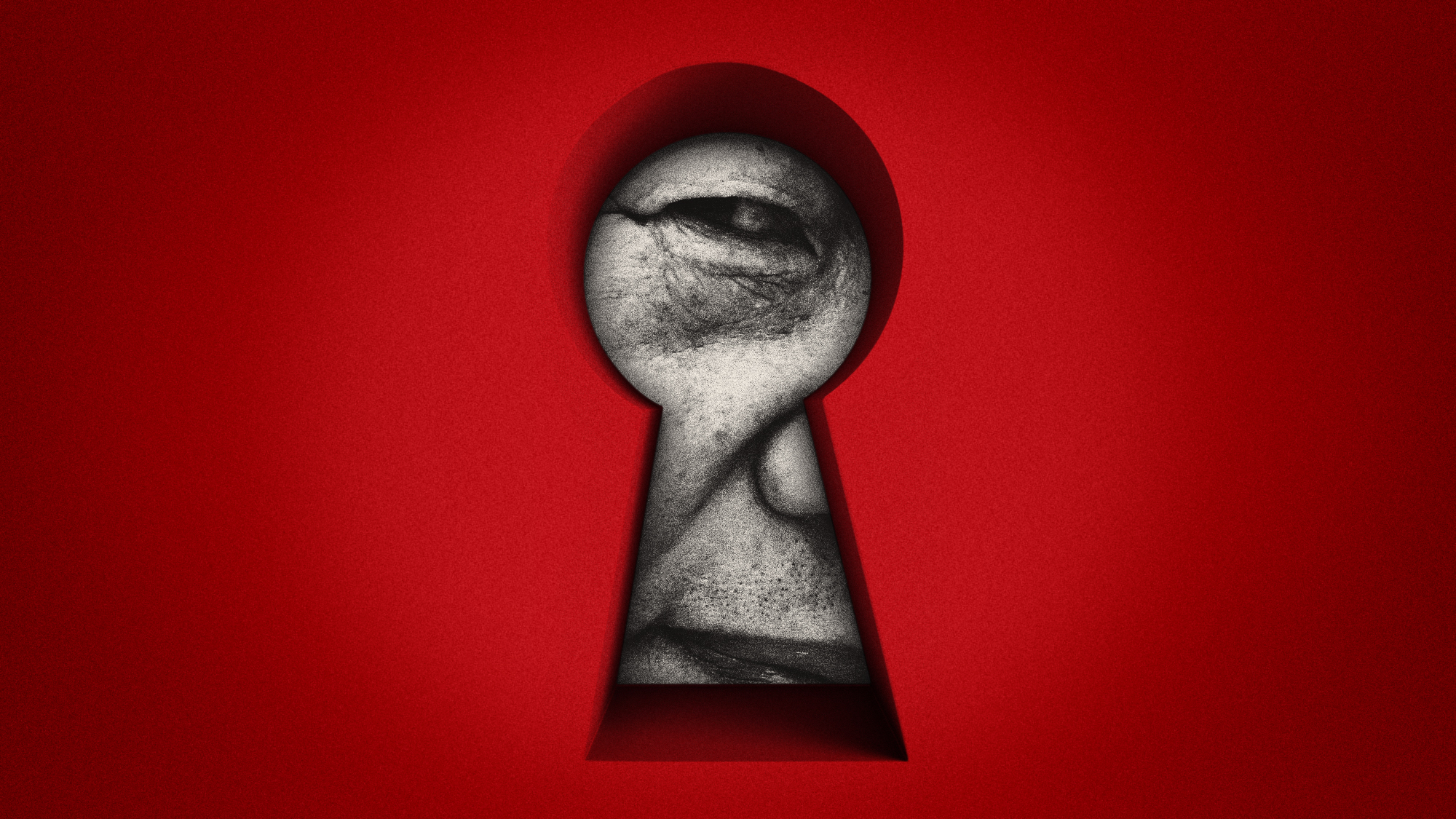How China could win in Russia-Ukraine row
Potential conflict in Europe highlights ‘deepening ties’ between Beijing and Moscow

A free daily email with the biggest news stories of the day – and the best features from TheWeek.com
You are now subscribed
Your newsletter sign-up was successful
While fears of a Russian invasion of Ukraine trigger panic among Western leaders, the response from China has been muted.
Officials in Beijing have joined Moscow in attempting “to block action on Ukraine at the United Nations Security Council”, and “expressed support” for Vladimir Putin’s grievances against the US and Nato over their response, The New York Times (NYT) reported.
China’s “deepening ties” with the Kremlin have prompted suggestions that “a war in Ukraine would make an already assertive Beijing even stronger”, said the Financial Times (FT). But The Economist argued that the East’s biggest powerbrokers are “aligned but not alike” – and that for China, “a skirmish in Ukraine is a risky sideshow”.
The Week
Escape your echo chamber. Get the facts behind the news, plus analysis from multiple perspectives.

Sign up for The Week's Free Newsletters
From our morning news briefing to a weekly Good News Newsletter, get the best of The Week delivered directly to your inbox.
From our morning news briefing to a weekly Good News Newsletter, get the best of The Week delivered directly to your inbox.
Dependent ally
China is “closely following Russia’s military build-up along its border with Ukraine”, said Radio Free Europe. Beijing reportedly views the stand-off “a litmus test for political unity in the West”, and according to analysts, “is using the mounting tensions as an opportunity to strengthen its ties with Moscow”.
Foreign Minister Wang Yi warned US Secretary of State Antony Blinken last week not to “hype up the crisis” on Europe’s eastern border. The Chinese official called for a peaceful resolution while warning that “reasonable security concerns should be taken seriously”.
“Regional security cannot be guaranteed by strengthening or even expanding military blocs,” Wang said, referring to Moscow’s concern about Nato’s eastern expansion.
As more than 100,000 Russian troops mass near Ukraine’s border, Beijing has remained “relatively mute”, the broadcaster reported. But Wang’s comments were the “most explicit so far in support of the Kremlin” and reflect “a growing bond between the two countries’ governments”.
A free daily email with the biggest news stories of the day – and the best features from TheWeek.com
The annexation of the Crimean Peninsula from Ukraine in 2014 – and the Western sanctions that followed – “drove Moscow into China’s arms”, said the FT. Between 2013 and 2021, Beijing’s “share of Russia’s external trade doubled from 10% to 20%”.
Should Putin give the order for another incursion into Ukrainian territory, further sanctions will almost certainly be imposed. And analysts believe “Moscow would become even more dependent on Beijing” as a result, the paper added.
Behind China’s internet firewall, “nationalist professors with large social-media followings proclaim that Chinese firms would surely defy American sanctions imposed over a fresh Ukraine conflict”, The Economist said. But “other, more sober scholars are sceptical”.
Some remain unconvinced that Beijing would aid Moscow in challenging the dollar’s hegemony if the US and Nato effectively cut the Russian economy off from much of the global financial system.
Feng Yujun, director of the Centre for Russian and Central Asian Studies at Fudan University in Shanghai, told the paper that as an exporter of commodities, Russia can survive a degree of economic isolation.
But “China’s development hinges on being tightly connected to the world’s industrial, value and supply chains”, he added. Beijing would be unlikely to “profit from a Russia that isolates itself further from the West”.
Or as The Economist put it, “Russia already seeks China’s money, technology, markets and political support”, so “how would China gain from a still more dependent Russia?”
Military alliance
While the economics of an invasion of Ukraine is likely to influence Putin’s decisionmaking, “the most significant questions looming over China’s potential role in a Ukraine conflict relate to its political and military partnership with Russia”, said the FT.
The two countries “insist that they are not in an alliance”. But “military collaboration in some areas has reached a level that rivals that between traditional allies”.
“There is no ceiling on the development of our relationship, no limit,” said former Chinese diplomat Zhao Mingwen, now a senior research fellow at the China Institute of International Studies. “This gives our Western friends a lot of room for imagination. You could say we are even more allies than allies.”
Beijing and Moscow would be likely to back each other in military confrontations with the West, Zhao told the paper, adding: “If China were forced to unify Taiwan by force and the US intervened, I believe Russia would not sit by idly.”
“If there’s a war over Ukraine, and the Chinese and Russians overtly align with one another, suddenly the world we’re in looks like a very, very different one,” said Evan S. Medeiros, a professor at Georgetown University who sat on the US National Security Council during Russia’s annexation of Crimea .
“China will be on the eastern front of what looks like a long-term global competition,” Medeiros told the NYT.
Beijing’s ambition to bring Taiwan back into its direct orbit means “the Western response to Moscow’s security demands on Nato and the possibility of a Russian invasion of Ukraine are being watched closely by Beijing”, said Radio Free Europe (RFE).
Analysts have warned that Western disunity could embolden Beijing in the future”, the US government-funded broadcaster continued, but “it is unknown if China would be fully supportive of another Russian invasion”.
“There are certainly implications from Russia invading Ukraine that affect China’s calculation in its own context for Taiwan, but that’s just one element among many,” said Zsuzsa Anna Ferenczy, a fellow at National Dong Hwa University in Taiwan and a former adviser to the European Parliament.
A Russian invasion “would have wider implications for other parts of the world”, she told RFE. “For China, it’s a question about whether that’s good for their interests or if it’s better that Russia holds back.”
‘Study in caution’
Economically, Russia can look to China to provide a “lifeline” should Putin decide to push ahead with an invasion, said the NYT. The “promise of economic and political support” from Beijing could “undermine Joe Biden’s strategy to ostracise the Russian leader”.
That outcome would “punctuate a tectonic shift in the rivalry between the US and China that could reverberate from Europe to the Pacific”, the paper warned.
China helped blunt the impact of the 2014 sanctions against Russia. All the same, said The Economist, “China was a study in caution” after Russia annexed Crimea. In keeping with “its obsession with its own territorial integrity”, Beijing “abstained when the UN Security Council considered the Ukraine crisis” back then.
At the time, Chinese officials “blamed tensions on plots and meddling by hostile Western forces”, yet Beijing has “never recognised Russia’s annexation of the Crimean Peninsula, and has since worked to build trade with Ukraine”.
“China has helped Russia reduce its vulnerabilities to sanctions” in the years since that illegal annexation, the paper continued. But “by and large”, Chinese banks “did not try to bust” such sanctions, placing “access to Western markets and financial systems first”.
Both Beijing and Moscow have a “common cause in trying to weaken American power and influence”, argued the NYT.
But many experts have pointed out that economic cooperation and support during a full-blown war in Europe are two very different things.
Ties between Russia and China “may be closer than they have been since the days of Mao and Stalin,” said The Economist, but “that does not make them uniquely important”.
-
 The Olympic timekeepers keeping the Games on track
The Olympic timekeepers keeping the Games on trackUnder the Radar Swiss watchmaking giant Omega has been at the finish line of every Olympic Games for nearly 100 years
-
 Will increasing tensions with Iran boil over into war?
Will increasing tensions with Iran boil over into war?Today’s Big Question President Donald Trump has recently been threatening the country
-
 Corruption: The spy sheikh and the president
Corruption: The spy sheikh and the presidentFeature Trump is at the center of another scandal
-
 Munich Security Conference: a showdown between Europe and Trump?
Munich Security Conference: a showdown between Europe and Trump?Today’s Big Question Report suggests European leaders believe they can no longer rely on the US for military support – but decoupling is easier said than done
-
 What is ‘Arctic Sentry’ and will it deter Russia and China?
What is ‘Arctic Sentry’ and will it deter Russia and China?Today’s Big Question Nato considers joint operation and intelligence sharing in Arctic region, in face of Trump’s threats to seize Greenland for ‘protection’
-
 Is the Chinese embassy a national security risk?
Is the Chinese embassy a national security risk?Today’s Big Question Keir Starmer set to approve London super-complex, despite objections from MPs and security experts
-
 What would a UK deployment to Ukraine look like?
What would a UK deployment to Ukraine look like?Today's Big Question Security agreement commits British and French forces in event of ceasefire
-
 Would Europe defend Greenland from US aggression?
Would Europe defend Greenland from US aggression?Today’s Big Question ‘Mildness’ of EU pushback against Trump provocation ‘illustrates the bind Europe finds itself in’
-
 Did Trump just end the US-Europe alliance?
Did Trump just end the US-Europe alliance?Today's Big Question New US national security policy drops ‘grenade’ on Europe and should serve as ‘the mother of all wake-up calls’
-
 Is conscription the answer to Europe’s security woes?
Is conscription the answer to Europe’s security woes?Today's Big Question How best to boost troop numbers to deal with Russian threat is ‘prompting fierce and soul-searching debates’
-
 Trump peace deal: an offer Zelenskyy can’t refuse?
Trump peace deal: an offer Zelenskyy can’t refuse?Today’s Big Question ‘Unpalatable’ US plan may strengthen embattled Ukrainian president at home